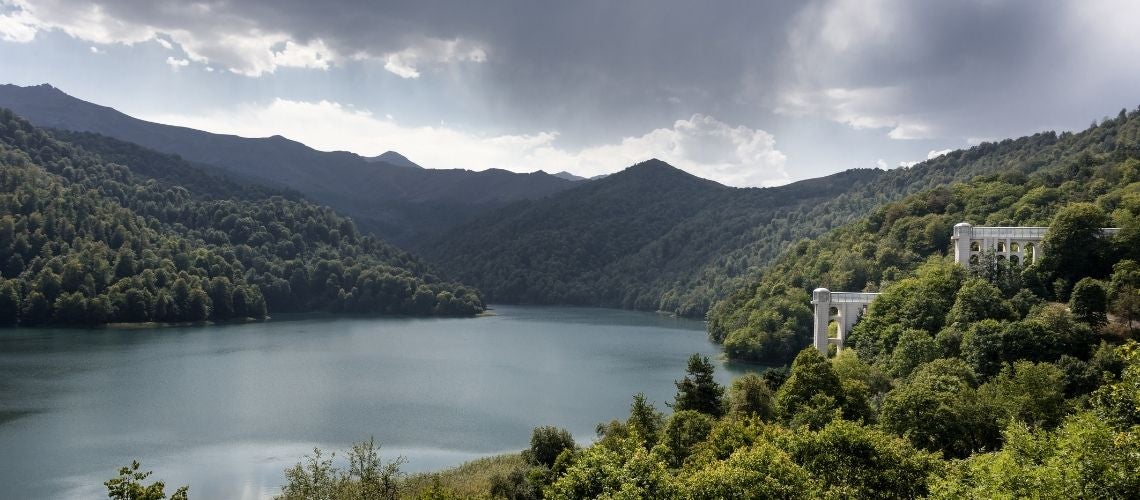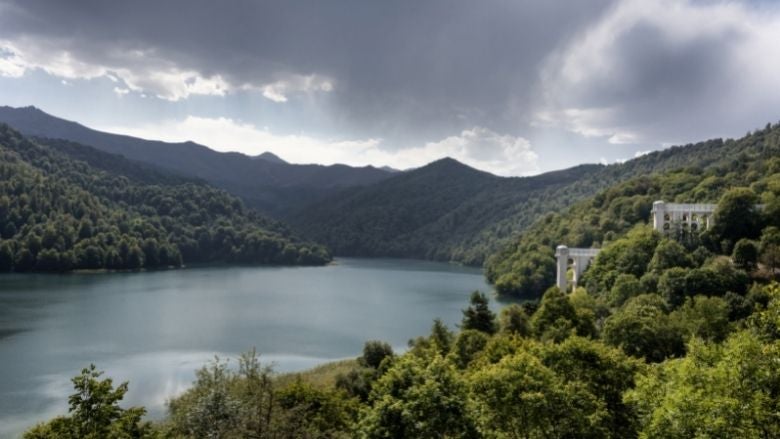 Lake Göygöl in Azerbaijan
Lake Göygöl in Azerbaijan
Co-authors: Pierrick Fraval, Smita Misra, Ranu Sinha, Zubedah Robinson, Hadji Huseynov
Azerbaijan celebrated Novruz last week, with festivities hailing water as a source and precursor of the re-birth of nature, and we were all reminded of how crucial water is in our lives. At the same time, on 22 March, the global water community commemorated World Water Day – an important occasion to remember that two billion people worldwide still do not have access to safe water and 3.6 billion lack access to safely managed sanitation services.
Global efforts demonstrate that building better water infrastructure alone is not enough. People also need resilient services, particularly in the context of climate change and increasing population growth. We cannot just fix the pipes - we must also fix the institutions that fix the pipes.
What does water mean for Azerbaijan?
Azerbaijan’s climate varies from dry in the central and eastern parts of the country, to subtropical and humid in the southeast. Aside from the Caucasus mountains and the Lankaran lowland, the rest of the country gets scant rainfall. Because of this, the country’s agriculture relies heavily on irrigation, which creates a challenge for the country’s 10 million people, almost half of whom live in rural areas and depend on agriculture.
This is compounded by the fact that Azerbaijan’s three main ground water sources – the Kura, Araz and Samur rivers – originate outside the country and are heavily exposed to overuse and pollution from industries and municipalities in neighboring countries and within Azerbaijan. Since not all wastewater treatment facilities are properly functioning, untreated municipal wastewater is the largest source of pollution of the water basins.
Droughts are also common in Azerbaijan, particularly in the country’s arid central regions. There is strong evidence from recent years that water levels in Kura and Araz rivers, as well as in the reservoirs fed by them, have drastically decreased.
What can be done?
Azerbaijan has invested more than $3 billion during the last two decades on critical infrastructure, from irrigation canals to dams, to water supply and wastewater facilities. While access to water supply has increased through a massive investment program in more than 50 secondary cities, the quality of these services suffers from substandard asset management, weak corporate governance, insufficient operation, deficient billing systems, and poor collection rates.
This can be addressed by strengthening public participation and citizen involvement in the decision-making process in the water sector, coupled with capacity building for the managerial structure within the water institutions. Azerbaijan also needs to invest in efficient monitoring programs of water quantity and quality for reliable data.
Additionally, more attention needs to be given to policies and institutions which affect the quality of the water service.
Azerbaijan has an opportunity to create an environment that supports strong institutions and policies within the public sector that help deliver reliable services for communities. The establishment of the Azerbaijan Investment Holding (AIH) is a major step in the Government’s oversight of the performance of large state-owned utility entities, including in the water sector.
The Government of Azerbaijan should also consider shifting towards performance-based financing, whereby government subsidies may be linked to specific service performance indicators by the Azersu Water Utility. Opportunities also exist to strengthen Azersu’s corporate governance and customer accountability practices. To help achieve financial sustainability and overall cost recovery, more energy-efficient practices are possible, thereby contributing to a “greener” water and sanitation sector.
Finally, it is important to recognize that water and sanitation services exist in a broader water resource management framework. Building the capacity of the newly established Water Commission to ensure proper coordination, support water security planning, and provide a platform for stakeholder consultation will ensure that services are managed in a way that is sustainable and more resilient for all.
The World Bank is committed to working with Azerbaijan to improve water supply and sanitation services, which will help prevent pollution, reduce poverty, and improve Azerbaijanis’ lives.



Join the Conversation